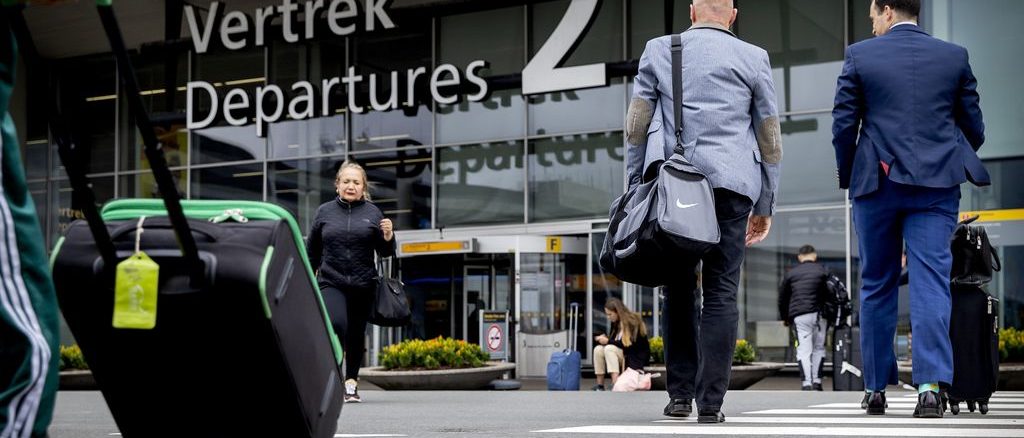
Fly savings programs remain popular, are they still relevant today?
Airline loyalty programs, also known as “frequent flyer” programs, continue to grow in popularity. This is evident from figures requested by the NOS.
Business travelers in particular take advantage of the promotions: they can save points with flights that they can spend privately (tax-free). The government wants to reduce CO2 emissions and the number of flights. Are these types of programs still relevant today?
A 2021 report from the Knowledge Institute for Mobility Policy (KiM) shows that 15 percent of adult Dutch people who fly (business or private) are members of such a loyalty program.
How many members does that mean in the Netherlands? In ten years, the membership of Miles & More (Lufthansa) has grown from 21,000 to 400,000. Skywards (Emirates) has 360,000 Dutch members, a third of whom have joined in the past five years.
Privilege Club (Qatar Airways) does not share figures, but does say that “the Dutch market is important”, and that the membership base in the Netherlands has increased tenfold in the past ten years.
KLM does not want to say whether the number of members of its Flying Blue program has increased or decreased over the past ten years. It is known that the company four years ago welcomed the two millionth Dutch member. And recently the airline announced that it has attracted financing that will allow the Flying Blue program to grow.
Avios (British Airways, Iberia, Aer Lingus and Vueling), Miles&Smiles (Turkish Airlines) and SkyMiles (Delta Air Lines) did not respond to questions from NOS.
How does it work?
Although each program has its own rules and benefits, it essentially comes down to the same thing: customers who join a loyalty program earn points by making flight movements.
There are various benefits, such as quick boarding and disembarking (priority lanes), access to special airport lounges, rebooking or upgrading to business class. The points can often also be exchanged with affiliated partners such as car companies, hotels or other loyalty programs.
The KiM report shows that those who fly the most also use savings programs most often. Almost everyone who makes eight or more flights a year participates in something. And these are mainly business travelers. Almost a quarter of travelers at Schiphol travel for a business reason.
If someone is flying for business, the chance that someone will also fly privately this year will increase significantly. KiM speaks of a self-reinforcing effect.
Yet outgoing Minister Harbers (IenW) said last month in response to parliamentary questions that “making Dutch Frequent Flyer Programs less attractive will not necessarily contribute to reducing CO2 emissions from aviation”.
No tax
Back to the miles. You can therefore spend your business saved points privately. According to research cited by KiM, 80 percent of savers do so.
Harbers says the following about this in answering parliamentary questions: “A plane ticket is taxed through the flight payment. (…) The effects of a tax on frequent flyer programs on the number of flights saved are unknown.” Harbers also wrote that organizations are free to implement their own policy here. “The government has no say in that.”
These types of miles programs keep your employees in the air.
Hugo Houppermans (Coalition for Different Travel)
Employers see this differently, says Hugo Houppermans of the Coalition for Different Travel, which guides large companies towards green mobility. “Employers with climate ambitions have their backs against the wall. They are given no resources to prevent or reduce this. These types of miles programs keep employees in the air.”
This is different in Germany: “There they see miles as wages in kind and they are taxed,” says Houppermans, “You can also determine that the points can only be spent on sustainable items such as insulation or an electric bicycle. Such as system now works, it encourages more flying and, in fact, airlines such as KLM and their partners in particular become rich from it.”
KLM refrains from commenting.
Dated
Odete Pimenta da Silva of the Dutch Association for Travel Management (NATM), which represents the interests of travel managers in the business world, is not enthusiastic about a tax on miles. The organization points to “the fatigue and private time that often comes with business travel, where travelers appreciate getting something in return for their efforts.”
There are also questions about who is charged – the traveler or the company – and how privacy is guaranteed. However, there are members who insist that airlines must do more to be able to use points for green initiatives.
The General Dutch Association of Travel Companies (ANVR) believes that such programs should be redefined. “They are somewhat dated. It would be better if one could save for, for example, a free suitcase or an extra meal.”
Accountability
For this research, major users of Schiphol were approached with savings programs. KLM/Transavia, Emirates, Lufthansa and Qatar Airways responded.

Be the first to comment